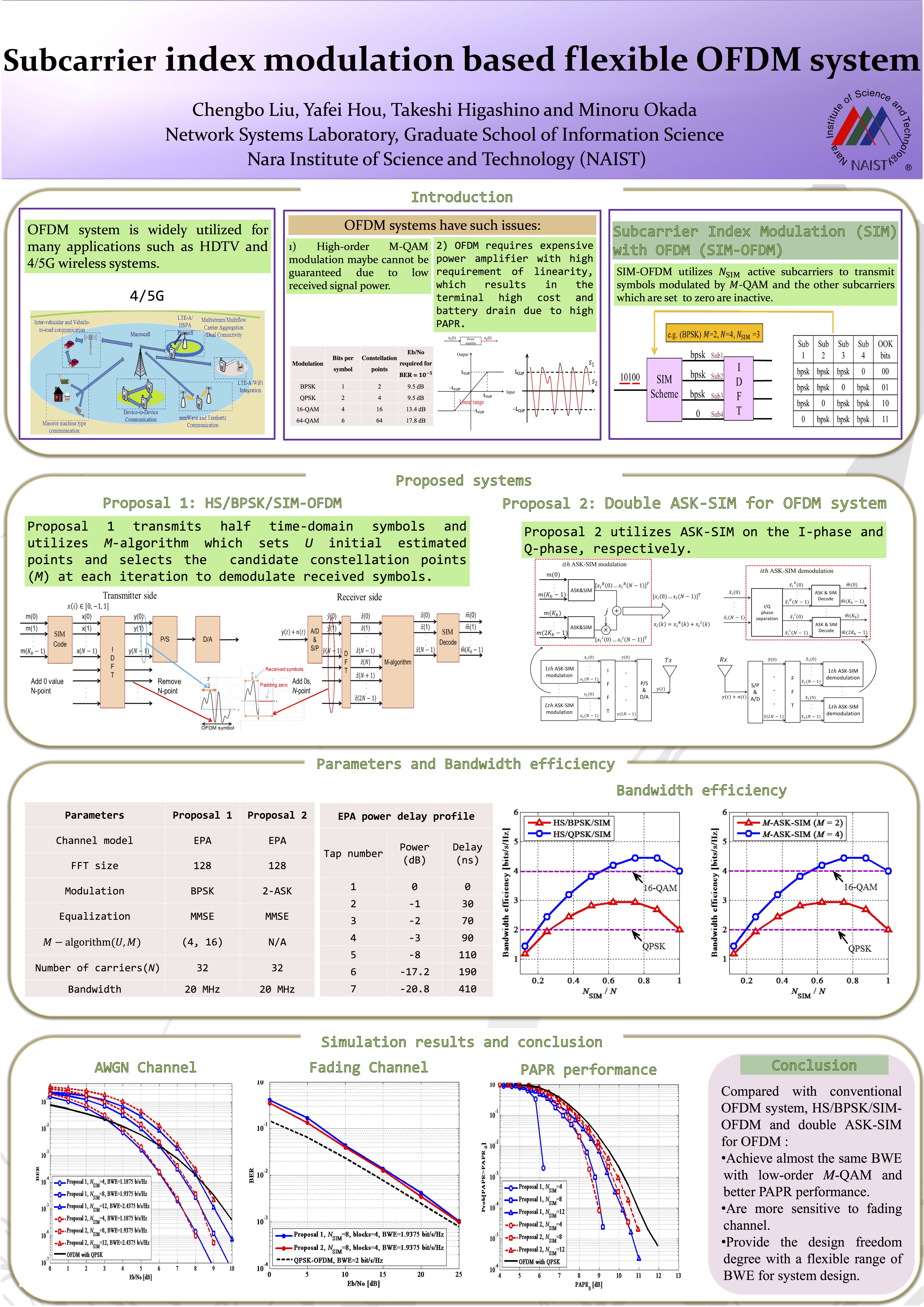Research Themes
- Subcarrier index modulation based flexible OFDM system
- Radio over Fiber Technology
- Throughput Measurement of 2-by-2 LCX-MIMO System in Real Indoor Liner-cell Environment
- Diversity Gain Analysis of SFN-STBC Digital Terrestrial TV System using Dual Polarized MIMO Antenna
- Linear cell system of LCX-MIMO and its beam-forming
- Compressed Sensing based Channel Estimation Algorithm for MIMO-OFDM System
- Sensing
- High-resolution localization using leaky coaxial cable antenna
- RFID tag localization using hybrid inductive-capacitive coupling
- Wireless Power Transmission
Research Topic: Subcarrier index modulation based flexible OFDM system
Research Brief
OFDM is an attractive system due to its high spectrum efficiency and high tolerance to multipath interference. However, the system has large peak-to-average ratio (PAPR) which requires expensive and large size power amplifier. On the other hand, some small devices usually can be designed with a simple structure if they select low-order 𝑀-QAM modulation like QPSK to transmit data. Therefore, the OFDM system will be more promising if it can descend the order of 𝑀-QAM modulation with almost identical bandwidth efficiency (BWE) compared to that of original OFDM system and reduce the PAPR. In this research, we will combine OFDM system with subcarrier index modulation (SIM) and propose two systems which are called half-symbol BPSK modulated SIM-OFDM (HS/BPSK/SIM-OFDM) and double ASK-SIM for OFDM system, respectively. The former system can double the BWE but require high complexity due to 𝑀-algorithm. The latter system can double the BWE of SIM-OFDM with a considerable complexity but have a little PAPR performance degradation compared to that of HS/BPSK/SIM-OFDM. However, the double ASK-SIM for OFDM system can still achieve better PAPR performance than that of original OFDM system with comparable BER performance. Therefore, The proposed systems can achieve flexible BWE with low-order 𝑀-QAM modulation and better PAPR characteristic with comparable BER performance.


